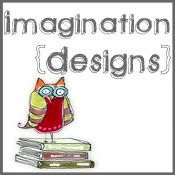We see them everywhere. On the television, on movies and they're always the same. Every movie that features teenagers and high schools have some kind of representation of them. There's always the jock, who is more often than not, dating the popular cheerleader (most probably the captain). Then, you've got the bad boy, the goth/freak who's a total loner. There's daddy's princess and the quiet nerd who just wants to fit in with the popular crowd.
No matter what movie/show you're watching, aren't they all the same? Okay, change the name and story they're involved in, but other than that they are all the same. Now, is this because this is the way teens act? Are they actually that easy to classify them? Or, is it easier to just place stereotypical characters into the story, even if they're just in the background?
I have no idea what it's like at a majority of other schools and my high school could have been the exception to the normal 'clique' rule, but the brainy top of the school was among the most popular (she could have been captain if she liked being the centre of attention). Half of the music and drama students were also heavily into sports (me included).
From observing teens in the playground I've noticed that they do tend to group, but mainly the ones that can't stay seated, to the loud and rambunctious and then the quiet and self-contained. I've just never seen a school here in Australia that is as highly classified as the ones portrayed in American high schools in movies.
Just like how everyone in real life is unique and doesn't really fit into any instant mould, so should the characters that fill the fictional world be. Even if they're minor characters that plays a very, very small part, they still need to look and act more than a cardboard cut out would. Giving some of the characters a little bit of role reversal like making one jock also one of the brightest kids in the class (hey, I actually knew a state rep for hockey who was in the top class for every subject), or a computer geek who is failing every other subject (hey what would you know, he was one of my good friends from high school, and thanks to him I topped the school in advanced computers in year 12... mainly because he failed everything else and had to repeat).
Giving characters unique personalities makes them spring to life and creates a new dimension to the world that is slowly forming throughout the story. Anything goes, as long as it still is realistic and believable.
As a lasting question why do stereotypes exist? Are they there because most of the personality traits are common among the majority of the same type of people? Or, did one person create a character a long, long, long.... long time ago and people are just trying to mimic it with no success?

























9 comments:
Hmmm... I'm not sure. I think stereotypes exist, especially in books, because they're something we can relate to. We all knew the jock, or the mean cheerleader or whatever. We can transfer the character in the book to the person we knew in real life.
Does that make it right/fair/whatever? Probably not.
I think stereotypes exist because of recurring behaviors. The same kind of kids I went to school with went to school with my mom and my grandmother and my great-grandmother, etc. You just kind of fall into the pattern.
I think we can write stereotypes but what really makes them human is giving them that twist in their personalities, like you suggested.
Interesting post. "The Breakfast Club" is my favorite movie so I'm quite thrilled with the picture. Hehe.
I think sterotypes exist in books because they require little thinking in the author -- but they detract from the sense of reality any novel needs. Roland
I remember watching Breakfast Club in a psychology class, and we had to tell what character we identify with the most. That was hard! I don't fit any of the standard stereotypes. I don't think our characters should either. They have to have some unique characteristics to be interesting, I agree.
This is really great post.
post free classified ads
Hmm I gotta agree with Elana. Stereotypes exist because they are easily recognizable. Like Roland says though, they can reflect a lazy author. I like it when a stereotype is turned on it's head.
I agree with what everyone else is saying. Although, I always find myself drawn to characters that break the mold but honestly so. Sometimes it's obvious that the writer is trying to create a "different" character.
Stereotypes are shorthand to represent a certain type of person. You can use them - carefully - to set up a character very quickly, but just as quickly give them quirks to interest the reader. I like to set up a stereotype, then turn it on its head.
Sometimes, you do meet those steriotypes in real life, and when that happens you are always surprised to find they so steriotypical.
I guess they happen because it is so much easier to go with the steriotypes than to turn them on their head.
Post a Comment